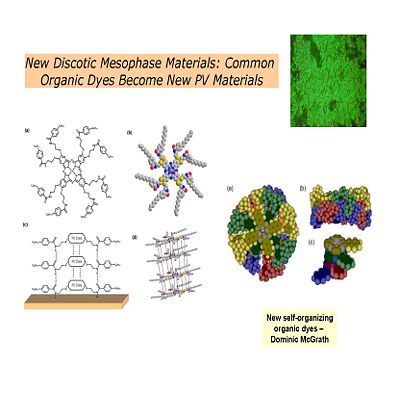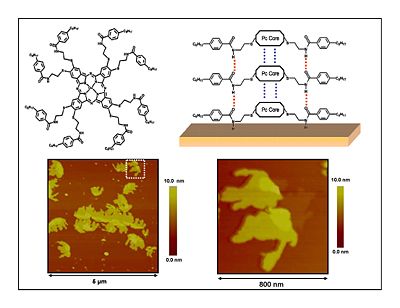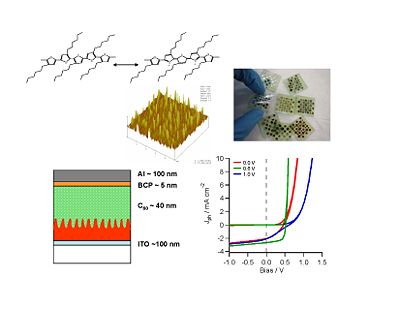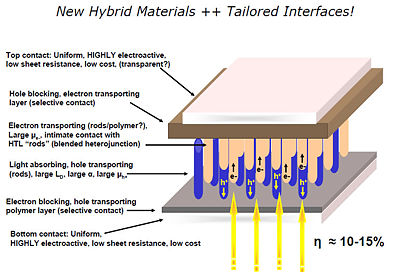Difference between revisions of "Current OPV Research Directions"
Jump to navigation
Jump to search
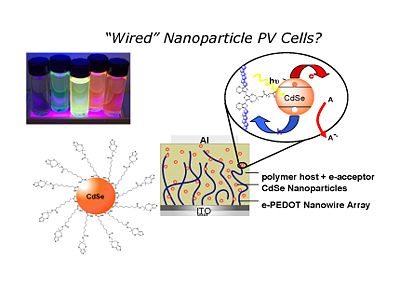
Cmditradmin (talk | contribs) |
Cmditradmin (talk | contribs) |
||
| Line 1: | Line 1: | ||
[[Main_Page#Organic Solar Cells|Return to OPV Menu]] | <table id="toc" style="width: 100%"> | ||
<tr> | |||
<td style="text-align: left; width: 33%">[[Energy vs Charge Transfer at Heterojunctions|Previous Topic]]</td> | |||
<td style="text-align: center; width: 33%">[[Main_Page#Organic Solar Cells|Return to OPV Menu]]</td> | |||
</tr> | |||
</table> | |||
| Line 23: | Line 31: | ||
== Tailored interfaces == | == Tailored interfaces == | ||
[[Image:hybrid materials.jpg|thumb|left|400px|New hybrid materials could be used to build a solar cell step by step. Light absorbing rods are placed on a transparent base. Then the electron transport rods, and the hole blocking layer.]] | [[Image:hybrid materials.jpg|thumb|left|400px|New hybrid materials could be used to build a solar cell step by step. Light absorbing rods are placed on a transparent base. Then the electron transport rods, and the hole blocking layer.]] | ||
<table id="toc" style="width: 100%"> | |||
<tr> | |||
<td style="text-align: left; width: 33%">[[Energy vs Charge Transfer at Heterojunctions|Previous Topic]]</td> | |||
<td style="text-align: center; width: 33%">[[Main_Page#Organic Solar Cells|Return to OPV Menu]]</td> | |||
</tr> | |||
</table> | |||
Revision as of 15:00, 1 June 2009
| Previous Topic | Return to OPV Menu |
These are promising directions in organic photovoltaic research being pursued at the CMDITR
Discotic Mesophase Materials
Dendritic Polymers
Nanoparticles
Semiconductor nanoparticles built from cadmium selenide 2-5nm in diameter take on interesting electron properties. The particle is capped with ligands to make them processable. The size of the nanoparticle determines the luminescence. The smallest make blue color, the largest makes the red. Used in a solar cell they absorb in the same color ranges.
Tailored interfaces
| Previous Topic | Return to OPV Menu |
